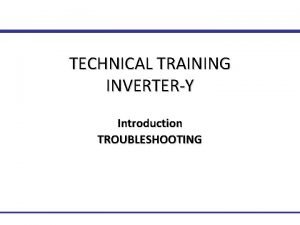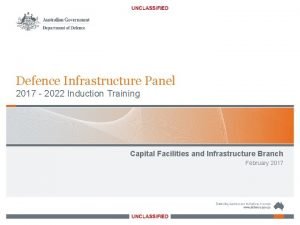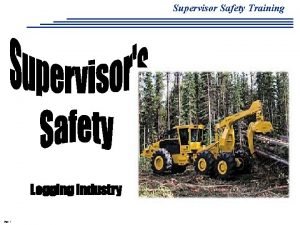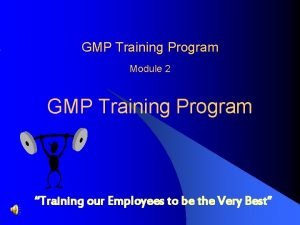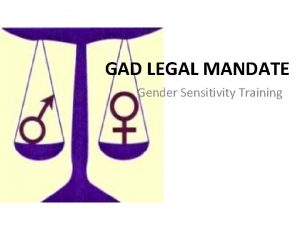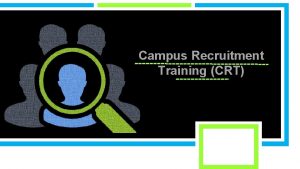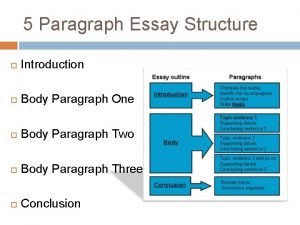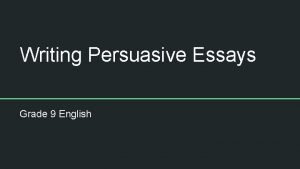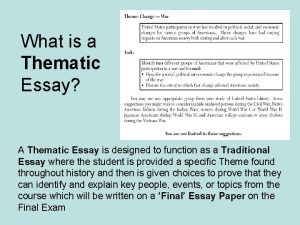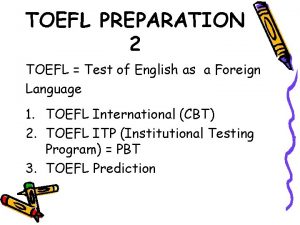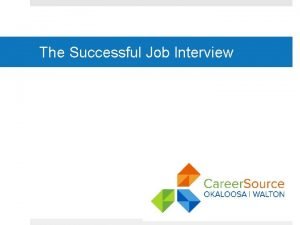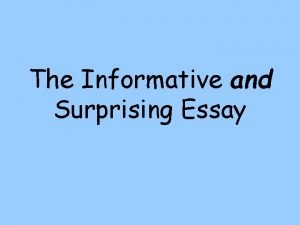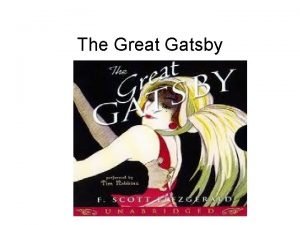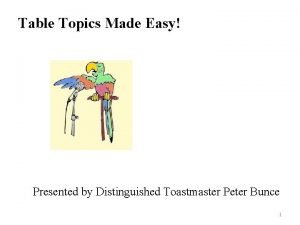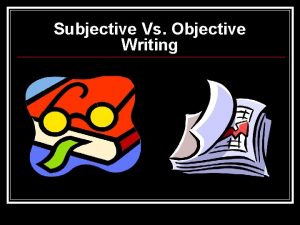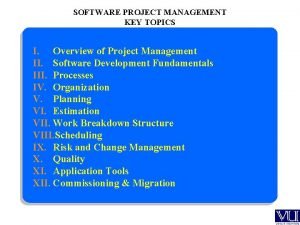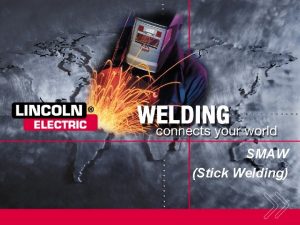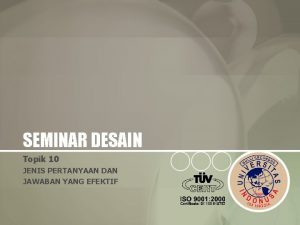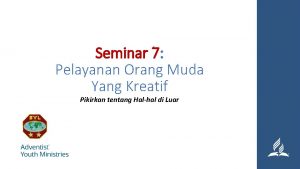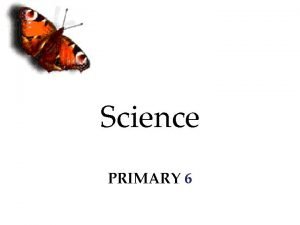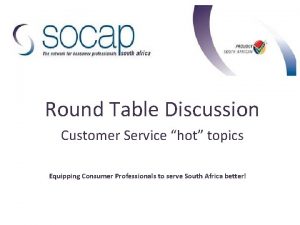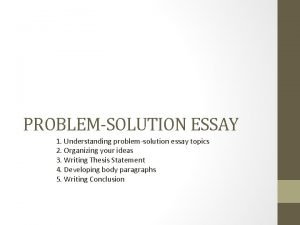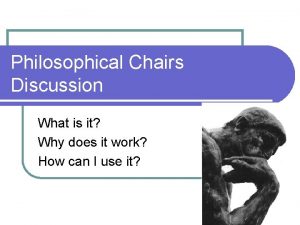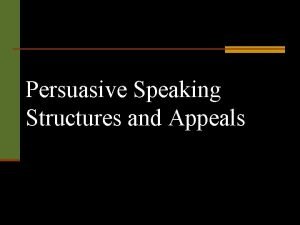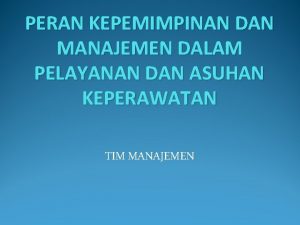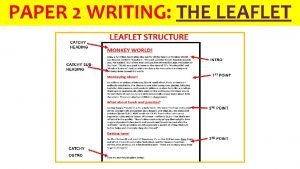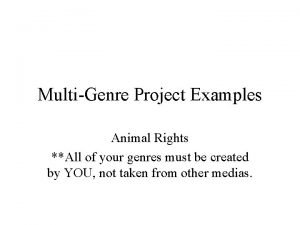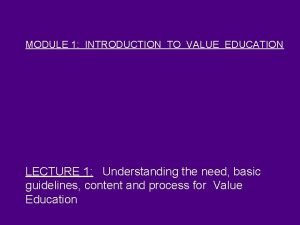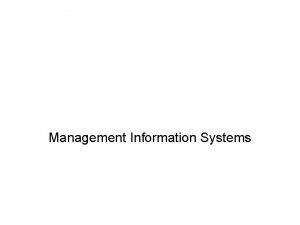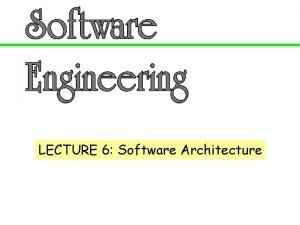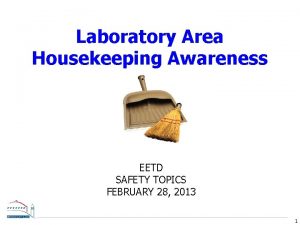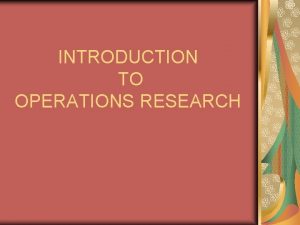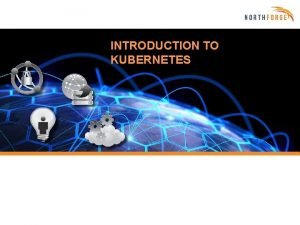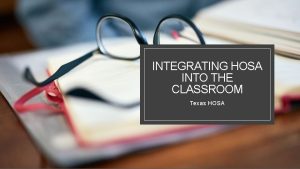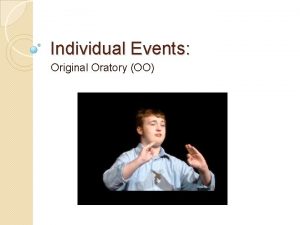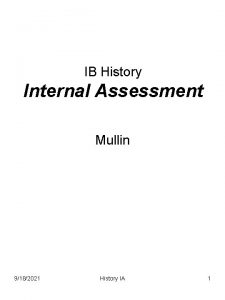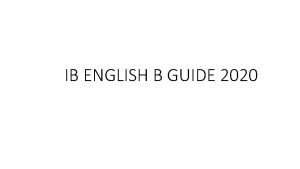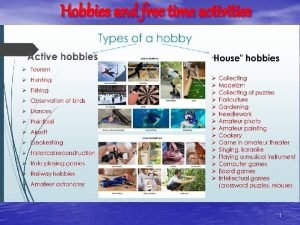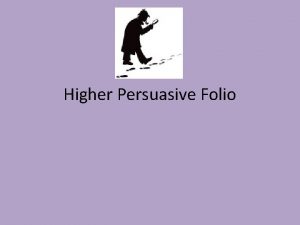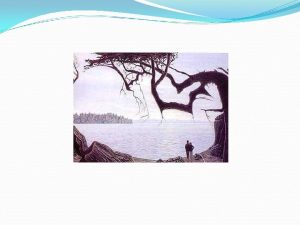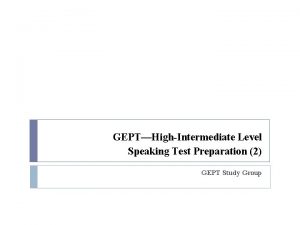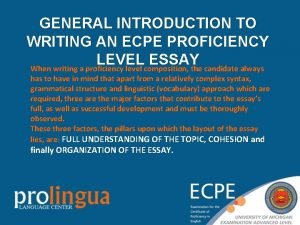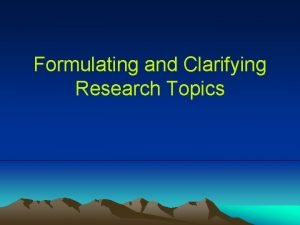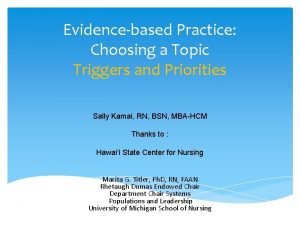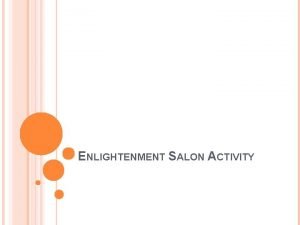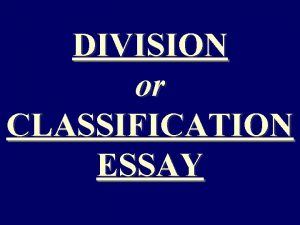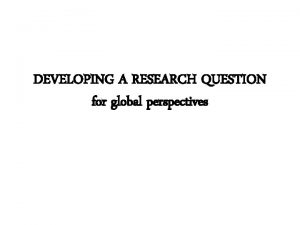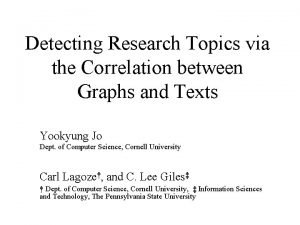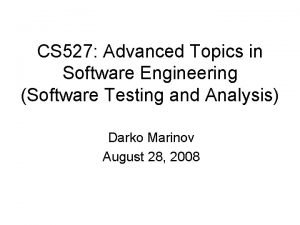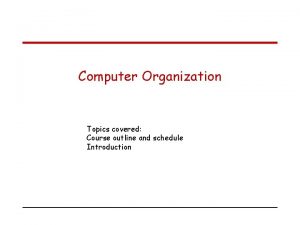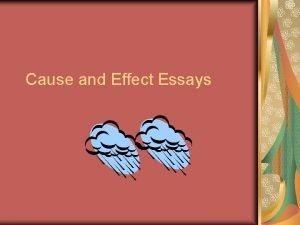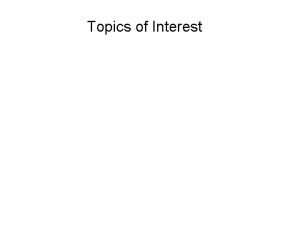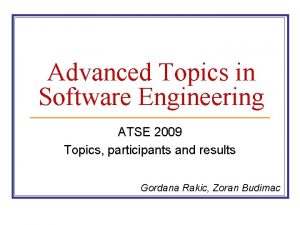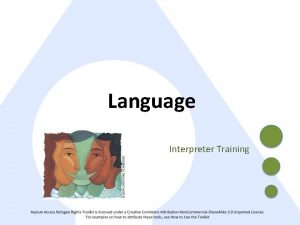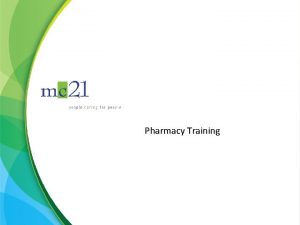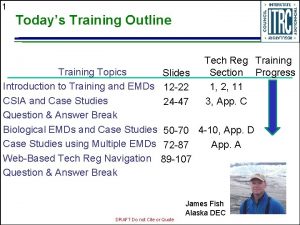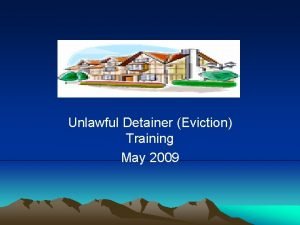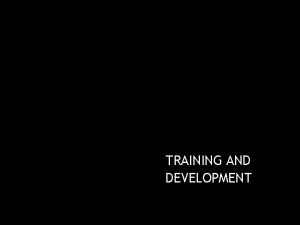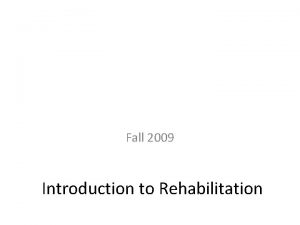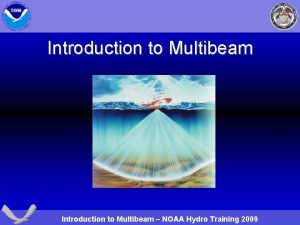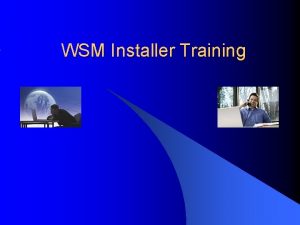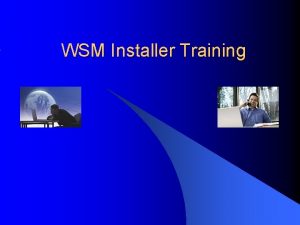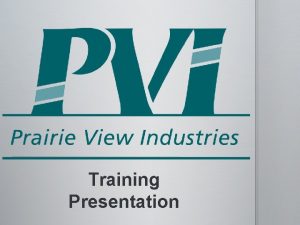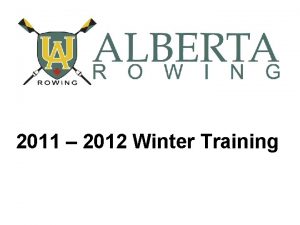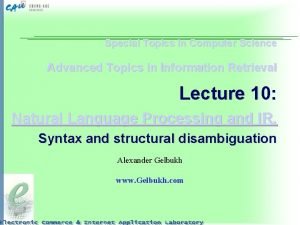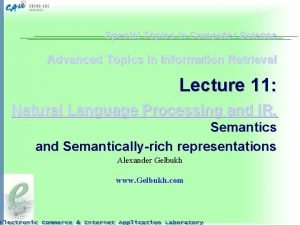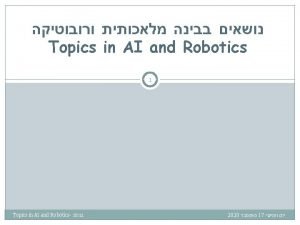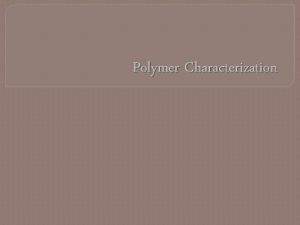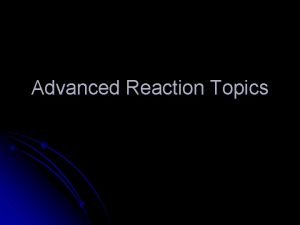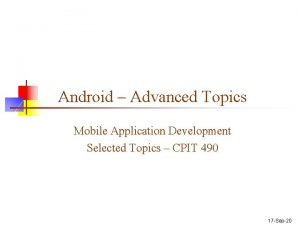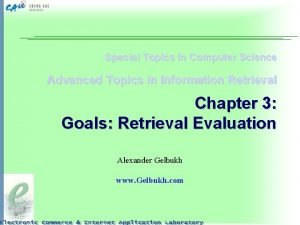INVERTERY TRAINING 2009 InverterY Training 2009 TOPICS Introduction


































































- Slides: 66

INVERTER-Y TRAINING 2009 Inverter-Y Training 2009

TOPICS • Introduction to Y-Inverter • Control Algorithm • Troubleshooting Inverter-Y Training 2009

INTRODUCTION Inverter-Y Training 2009

INTRODUCTION • What is inverter ? • What are the advantages ? • Differences between Conventional & Inverter A/C • Basics of Inverter Technology Inverter-Y Training 2009

INTRODUCTION What is Inverter? • Electrical supply has fix frequency • Inverter type air conditioner have frequency changer which can change the electrical frequency to control the speed of the compressor • This in turn, can control the capacity accordingly Inverter-Y Training 2009

INTRODUCTION Advantages • Enhanced room temperature comfort - More precise room temperature control - Temperature fluctuation is kept within ± 0. 5 C from set temperature Conventional Inverter-Y Training 2009

INTRODUCTION Advantages • Less on / off cycle Conventional compressor Compressor capacity Room temperature control: switching compressor ON & OFF Full capacity Time Compressor capacity Smooth ramp up from zero to high rotational speed Inverter Slow down as temperature drops Inverter-Y Training 2009 Maintain room temperature at low speed Room temperature control: Control compressor rotational speed smoothly Time

INTRODUCTION Advantages • Starting frequency Compressor frequency (rps) 1. 0 hp – 68 rps 1. 5 hp – 74 rps Max. 55 35 Target frequency 20 0 Time (min) 1 2 6 Inverter-Y Training 2009

INTRODUCTION Advantages • Fast cooling Conventional non-inverter A/C Inverter A/C Room temperature Set temperature Time Quick cooling Inverter-Y Training 2009

INTRODUCTION Advantages • Low starting current Running current Conventional A/C: • High starting current • Frequent on/off cycle Inverter A/C: • Low starting current • Smooth operation Hours of operation Inverter-Y Training 2009

INTRODUCTION Advantages • Higher reliability üLess compressor start – stop cycle üLow starting current üLonger compressor motor lifespan Inverter-Y Training 2009

INTRODUCTION Advantages • Low energy consumption with superior efficiency ü Frequency of supply current is varied according to load requirements – excellent efficiency ü Range is between 0 – 68 rps (204 Hz) for 1. 0 hp 0 – 74 rps (222 Hz) for 1. 5 hp Lowest operating frequency = 60 Hz ü Resulting in significantly LESS compressor start/stop – low energy consumption Inverter-Y Training 2009

INTRODUCTION Advantages • Protection Additional software protection against üOver current üOver heating Inverter-Y Training 2009

INTRODUCTION Differences Overview Description Inverter A/C Outlook feature Conventional A/C Almost same Controller Variable frequency control Relay sequence control Compressor Inverter 3 -Phase 1 or 3 -Phase Frequency 0 ~ 204/222 Hz 50 or 60 Hz Inverter-Y Training 2009

INTRODUCTION Basics of Inverter Technology Inverter-driven Compressor IPM (Inverter Power Module) Inverter-Y Training 2009 Electronic Expansion Valve (EXV)

INTRODUCTION Basics of Inverter Technology Power supply Rectifier circuit IPM Compressor Motor Adjust capacity according to actual load by • Controlling the EXV opening • Controlling the refrigerant flow Inverter-Y Training 2009

INTRODUCTION Basics of Inverter Technology Inverter system block diagram Energy Source Rectifying Circuit Inverter-Y Training 2009 Inverter Circuit Compressor Control & Protection Circuitry Feedback

INTRODUCTION Basics of Inverter Technology Inverter drive power circuit IN U V W Rectifier Inverter-Y Training 2009 Inverter M OUT

INTRODUCTION Basics of Inverter Technology What are Rectifier / Inverter? Rectifier: Rectifying with smoothing Changing AC DC Inverter: Inverse transformation with P. W. M. Changing DC AC Inverter-Y Training 2009

INTRODUCTION Basics of Inverter Technology Inverter drive power circuit - components IN U V W Diode Reactor IPM(Inverter Module) Electrolytic capacitor Inverter-Y Training 2009 M OUT

INTRODUCTION Basics of Inverter Technology The system Inverter Output Frequency Power supply Input frequency 50 Hz u t Inverter AC/DC Rectifier 222 Hz t 1 DC/AC Inverter 50 Hz Inverter-Y Training 2009 t 222 Hz IPM 60 Hz compressor motor input

INTRODUCTION Basics of Inverter Technology Indoor PCB Inverter-Y Training 2009

INTRODUCTION Basics of Inverter Technology Outdoor PCB Inverter-Y Training 2009

CONTROL ALGORITHM Inverter-Y Training 2009

CONTROL ALGORITHM Frequency Principle • The compressor is frequency-controlled during normal operation. The target frequency is set based on following parameters: i) Outdoor ambient temperature ii) Set temperature iii) Room temperature • When the frequency increases, the rotation speed of compressor increases resulting in an increased refrigerant circulation, this lead to higher amount of heat transfer and vice versa when frequency decreases. Inverter-Y Training 2009

CONTROL ALGORITHM Operating Modes • The system has 2 operating modes. The mode selection is done in Inverter (indoor) controls. • The operating modes are: – Cool – Fan Inverter-Y Training 2009

CONTROL ALGORITHM Function – Cool Mode • When Tr >= Ts – 1. 5°C - Comp, ID Fan and OD Fan ON • When Tr <= Ts - 2°C - Comp and OD Fan OFF - ID Fan remain ON Tr = Room Temperature Ts = Set Temperature Inverter-Y Training 2009

CONTROL ALGORITHM Function – Cool Mode • • At beginning of cooling operation, compressor frequency will be increased smoothly to the target frequency so that the room temperature is reduced. When set temperature is achieved, operation frequency will be reduced to stabilize the room temperature. Inverter-Y Training 2009

CONTROL ALGORITHM When will Compressor Stop? • When cooling load is too small, even with lowest operation frequency and the room temperature still fall below compressor cut off point, compressor will stop. Compressor Capacity Lowest Freq Time Tr <= Ts - 2°C Comp will stop Inverter-Y Training 2009

CONTROL ALGORITHM Function - Fan Mode • • Only High, Medium and Low fan speeds are allowed. When changing cool mode to fan mode, the compressor will stop and OD fan stops after 30 s. Compressor will only ON if the minimum stop time is > 3 minutes and the user change back to cool mode. Fan speed will maintain same as during fan mode. Inverter-Y Training 2009

PROTECTION Protection Control - Data Communication Error Between Indoor and Outdoor • • Master by outdoor unit. Indoor controller board will transmit signal to outdoor controller board every 0. 5 s. Outdoor unit will response to indoor once the valid data is received. Indoor Acknowledge Send Signal Outdoor Inverter-Y Training 2009

PROTECTION Protection Control - Data Communication Error Between Indoor and Outdoor • • • If the data communication line between indoor and outdoor occurs error for 15 s continuously, compressor will stop, OD fan stop after 30 s. ID LED blinks error. If the communication resumes after 15 s, error code is clear and compressor restarts after 3 minutes. If the communication is not resume after 15 s, unit unable to restart and the error keep blinking. Inverter-Y Training 2009

PROTECTION Indoor Coil Frost Prevention • • Only available in cooling mode. When the indoor coil temperature < 2°C, the compressor starts to drop the frequency. This protection is activated when: - Indoor coil temperature < 0°C for more than 180 s. Compressor will stop, OD fan stop after 30 s and indoor fan can only run at super low fan speed. The unit can only be restarted after 3 minutes. When the indoor coil temperature >13°C, the compressor frequency will be reset based on the OD ambient, room and set temperature. Inverter-Y Training 2009

PROTECTION Input Current Control No. Unit Capacity I 1 1 1. 0 HP 9. 5 A 2 1. 5 HP 10 A Inverter-Y Training 2009 I 2 6. 5 A 7 A I 3 5. 5 A 6 A

PROTECTION Input Current Control • • When the input current for running compressor exceeds I 2, running frequency will be reduced by 1 step. If current still exceeds I 2, frequency will be reduced by another 1 step until total current falls between I 2 and I 3. This protection is activated when the input current exceeds I 1 for 2 seconds. Compressor will stop and it is considered total current overload. The unit can only be restarted after 3 minutes. If input current <I 3, the compressor frequency is reset based on the OD ambient, set and room temperature. Inverter-Y Training 2009

PROTECTION Compressor Discharge Temperature Control Inverter-Y Training 2009

PROTECTION Compressor Discharge Temperature Control • • If compressor discharge temperature >102°C, running frequency will be reduced by 1 step. If compressor discharge temperature still >102°C, frequency will be reduced by another 1 step until temperature falls between 99°C and 90°C. This protection is activated when the compressor discharge temperature > 110°C. The compressor will stop and considered trip. The unit can only be restarted after 3 minutes. If the compressor discharge temperature < 90°C, the compressor frequency will be reset based on the OD ambient, set and room temperature. Inverter-Y Training 2009

PROTECTION High Pressure Protection Inverter-Y Training 2009

PROTECTION High Pressure Protection • • • The compressor frequency is adjusted depend on the coil temperature. This protection is activated when the outdoor coil temperature > 64°C, the compressor stop and OD fan stop after 30 s. The unit can only be restarted after 3 minutes. Inverter-Y Training 2009

PROTECTION IPM error • • Protection on the IPM error is declared when; i) Compressor’s motor peak current > 21 A OR ii) IPM temperature >100°C OR iii) IGBT peak current > 16 A. Inverter-Y Training 2009

TROUBLESHOOTING Inverter-Y Training 2009

TROUBLESHOOTING Fault display by indoor unit When any error occurs, indoor LED display will keep blinking LED blinks here Inverter-Y Training 2009

TROUBLESHOOTING Fault diagnosis by remote controller TIMER CANCEL button Hold down ON TIMER CLR or OFF TIMER CLR for 5 seconds Inverter-Y Training 2009

TROUBLESHOOTING Fault diagnosis by remote controller • Press TIMER CANCER repeatedly until ID buzzer produces long beep • The handset temperature display section will indicate the error code Error code • ID unit buzzer will produce long beep if the handset error code = unit error • A short and two consecutive beeps is not the unit error Inverter-Y Training 2009

TROUBLESHOOTING Fault diagnosis using outdoor 7 -segment display Inverter-Y Training 2009

TROUBLESHOOTING Fault diagnosis using outdoor 7 -segment display When there is no error, compressor running frequency is displayed, unit: rps Inverter-Y Training 2009 Flashes error code when error occurs

TROUBLESHOOTING Fault diagnosis – stored last state error • • • Remove battery from remote controller Replace battery again into remote controller Press Mode & ON/OFF buttons together Mode button ON/OFF button • • • TIMER CANCEL button Press Mode button to 5: 00 Press ON/OFF once Repeat the fault diagnosis by remote controller steps Inverter-Y Training 2009

TROUBLESHOOTING Error Codes Inverter-Y Training 2009

TROUBLESHOOTING Outdoor 7 -segment display • • • Press on the tact switch Display parameter by flashing of 7 -segment Parameter 125, display as 25, follow by 01 Inverter-Y Training 2009

TROUBLESHOOTING Equipments • Digital clamp meter AC CURRENT RESISTANT AC VOLTAGE • • Digital multi-meter Pressure gauge Inverter-Y Training 2009

TROUBLESHOOTING Error C 4 – ID coil thermistor short / open - Remove the ID coil thermistor from PCB Set digital multi-meter to ohm reading Measure both terminals on the sensor using multi-meter test leads The reading must comply with a particular temperature, refer Table 3 If the reading differs by ± 2°C. It is acceptable Inverter-Y Training 2009

TROUBLESHOOTING Resistance - temperature At 25 C Resistance value: 10 k Inverter-Y Training 2009

TROUBLESHOOTING Error C 9 – Room thermistor short / open Sensor RTH 201 1. Possibility – low 2. Unit design with air opening at the front panel to allow sufficient space for air flow & measurement 3. 10 C < operating temp. < 40 C Air intake gap for room temperature sensing Inverter-Y Training 2009

TROUBLESHOOTING Error H 9 – OD air thermistor short / open Error J 3 – Compressor discharge pipe thermistor short / open / misplaced Error J 6 – OD coil thermistor short / open Share a same connector Connection to PCB Inverter-Y Training 2009

TROUBLESHOOTING Error H 9 – OD air thermistor short / open Thermistor - Remove the OD air thermistor from PCB Set digital multi-meter to ohm reading Measure both terminals on the sensor using multi-meter test leads. The reading must comply with a particular temperature, refer Table 3 If the reading differs by ± 2°C. It is acceptable Inverter-Y Training 2009

TROUBLESHOOTING Error J 3 – Compressor discharge pipe thermistor short / open / misplaced Thermistor - Remove the compressor discharge pipe thermistor from PCB Set digital multi-meter to ohm reading Measure both terminals on the sensor using multi-meter test leads. The reading must comply with a particular temperature, refer Table 3 If the reading differs by ± 2°C. It is acceptable Inverter-Y Training 2009

TROUBLESHOOTING Error J 6 – OD coil thermistor short / open Thermistor - Remove the OD coil thermistor from PCB Set digital multi-meter to ohm reading Measure both terminals on the sensor using multi-meter test leads. The reading must comply with a particular temperature, refer Table 3 If the reading differs by ± 2°C. It is acceptable Inverter-Y Training 2009

TROUBLESHOOTING Error P 4 – Heat sink thermistor short / open - Remove the heat sink thermistor from PCB Set digital multi-meter to ohm reading Measure both terminals on the sensor using multi-meter test leads. The reading must comply with a particular temperature, refer Table 3 If the reading differs by ± 2°C. It is acceptable Inverter-Y Training 2009

TROUBLESHOOTING Error E 8 – AC input over current - Set clamp meter to AC current - Clamp terminal 1 on the OD unit terminal block - If the reading < 10 Amp. It is acceptable Inverter-Y Training 2009

TROUBLESHOOTING Error U 2 – DC voltage out of range - Set multi-meter to DC voltage - Measure terminals 1 & 2 on the OD unit terminal block using multi-meter test leads - If the reading is within 220240 V. It is acceptable positive lead (+) negative lead (-) Inverter-Y Training 2009

TROUBLESHOOTING Error F 6 – High pressure protection - Coil overload Possible causes: coil dirty and air short circuit Where a wall or other obstacle is in the path of outdoor unit’s intake or exhaust airflow Follow this installation guidelines to avoid air short circuit Inverter-Y Training 2009

TROUBLESHOOTING Error L 5 – IPM / IGBT error - Possible causes: over current or over heat At start up: could be due to software After running some time: could be due to over current or over heat Heat sink IPM Inverter-Y Training 2009

TROUBLESHOOTING Error UO – Insufficient gas Check pressure reading at rated capacity Press & hold - Connect pressure gauge to OD service valve - Press and hold on the ID ON/OFF button - Set to high fan mode and temperature at 16 °C using remote controller - Under cooling mode: For 1. 0 hp: at 45 rps, the pressure reading should be between 125 – 150 psi For 1. 5 hp: at 65 rps, the pressure reading should be between 125 – 150 psi Inverter-Y Training 2009

TROUBLESHOOTING Error U 4 – Communication error - Maximum communication wire length up to 30 meters - External interference or noise Make sure the recommended type of wire is used Check for loose connection Inverter-Y Training 2009

TROUBLESHOOTING Error UA – Installation error Y 5 WMY 10/15 J Y 5 SLY 10/15 D Inverter-Y Training 2009

Thank You Q&A Inverter-Y Training 2009
 Invertery
Invertery Invertery
Invertery Behavioural training topics
Behavioural training topics Defence infrastructure panel
Defence infrastructure panel Safety images
Safety images Gmp training module
Gmp training module Thank you for listening
Thank you for listening Campus recruitment training topics
Campus recruitment training topics Intro paragraph layout
Intro paragraph layout Topics for writing articles for school magazine
Topics for writing articles for school magazine Year 9 writing examples
Year 9 writing examples Thematic essay introduction
Thematic essay introduction Skill 24 anticipate the questions
Skill 24 anticipate the questions Purpose of interview
Purpose of interview Informative and surprising essay topics
Informative and surprising essay topics Great gatsby topics
Great gatsby topics Thematic statement structure
Thematic statement structure Toastmasters table topics questions
Toastmasters table topics questions Writing
Writing Example of emotive language
Example of emotive language Software project management topics
Software project management topics Sociolinguistics topics
Sociolinguistics topics Smaw welding lesson plans
Smaw welding lesson plans Pertanyaan tentang materi seminar
Pertanyaan tentang materi seminar Acara pemuda advent yang menarik
Acara pemuda advent yang menarik Psle science syllabus
Psle science syllabus Customer service discussion topics
Customer service discussion topics Topics for a problem solution essay
Topics for a problem solution essay Topics for philosophical chairs
Topics for philosophical chairs Problem solution persuasive speech
Problem solution persuasive speech Peran pemimpin dalam keperawatan
Peran pemimpin dalam keperawatan Leaflet writing examples pdf
Leaflet writing examples pdf In an outline the relationship of topics
In an outline the relationship of topics Osslt
Osslt Newspaper report topics
Newspaper report topics Multi genre examples
Multi genre examples Introduction of value education
Introduction of value education Types of information systems
Types of information systems Vts-0fxyt-e -site:youtube.com
Vts-0fxyt-e -site:youtube.com February safety topics
February safety topics Operation research topics
Operation research topics Kubernetes topics
Kubernetes topics Texas hosa competitive events
Texas hosa competitive events Original oratory topics
Original oratory topics Lac session reflection
Lac session reflection History ia part c
History ia part c Ib identities
Ib identities Sports nutrition topics
Sports nutrition topics Free time survey questions
Free time survey questions Line of inquiry ib english examples
Line of inquiry ib english examples Higher persuasive essay examples
Higher persuasive essay examples Pinch point toolbox talk
Pinch point toolbox talk Group discussion meaning in tamil
Group discussion meaning in tamil Gept writing topics
Gept writing topics Ecpe essay writing
Ecpe essay writing Research topics and objectives
Research topics and objectives Problem focused trigger
Problem focused trigger Enlightenment salon
Enlightenment salon Prayer topics for prayer meeting
Prayer topics for prayer meeting Division and classification topics
Division and classification topics Global perspective research topics
Global perspective research topics Correlational research topics
Correlational research topics Example of demonstrative speech
Example of demonstrative speech Cs 527
Cs 527 Computer organization course
Computer organization course Chemistry extended essay
Chemistry extended essay Cause and effect essays topics
Cause and effect essays topics
